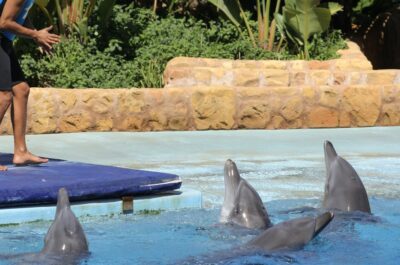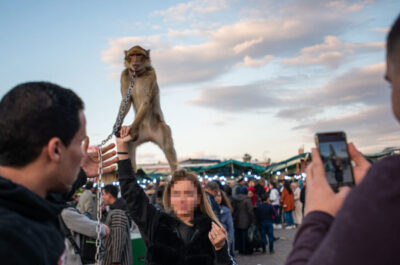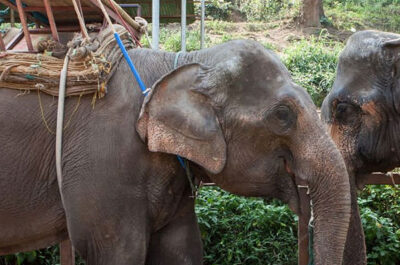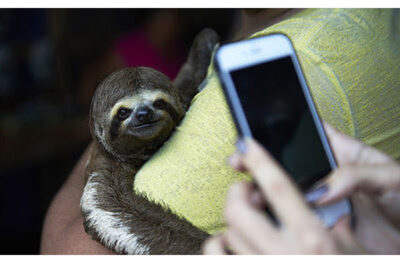World animal protection exposes the cruelty of commercial lion parks in new report. Lion parks are increasingly popular attractions where tourists can get up close and personal for a 'once in a lifetime' encounter with wild lions in captivity.
NEW YORK – Cecil was just one of thousands of lions whose welfare and existence is under threat from unethical tourism practices throughout Africa, reveals World Animal Protection in a new report.
Many tourists are unwittingly creating a demand that, beyond the horrors of hunting, subjects lions to a lifetime of misery from the moment they are born.
Lion parks are increasingly popular attractions where tourists can get up close and personal for a ‘once in a lifetime’ encounter with wild lions in captivity. Lion cubs, intensively bred especially for lion parks, are taken from their mothers, sometimes at just a few weeks old, to be used as photo props for tourist selfies and sometimes ‘lion walks’ – all in the name of entertainment. Numbers of captive-bred lions in South Africa have almost doubled since 2005 to at least 5,800 animals.
World Animal Protection has major concerns about the welfare of cubs in lion parks:
– Lion cubs are separated from their mothers, sometimes only a week after they are born, to begin their ‘training’ to become safe for tourist handling
– Young cubs are presented to tourists, constantly viewed, and mishandled hundreds of times a day, which can lead to stress and injury
– Lion cubs are typically punished using pain and fear in order to stop aggressive, unwanted behavior
– Lions are often kept in small concrete enclosures and may be fed an inadequate diet that doesn’t even meet their basic welfare needs
– These conditions can cause chronic stress, making lions more susceptible to disease.
World Animal Protection also fears for the fate of adult lions who are no longer of use to lion parks as they become too large and dangerous for direct contact with tourists. Unlike other captive conservation programs, commercial lion parks do not help to boost wild population numbers as their lions can never be safely released into the wild.
Instead, adult lions are either euthanized, kept in increasingly crowded captive conditions, or may be sold to zoos, lion farms or even private collectors for profit. Lion parks deny supplying captive-bred lions for ‘canned’ or ‘put-and-take’ lion hunts, in which lions are hunted in small enclosures from which they cannot escape; however, most commercial lion parks possess little knowledge of what happens to lions after they have been sold.
Kate Nustedt, Director of Wildlife at World Animal Protection, says: “It is entirely credible that the lion cubs from your vacation selfie may become the same animals that are later shot by trophy hunters. From the moment they are born, lions in tourist parks are destined for a lifetime of misery. Many tourists are currently unaware that they are unwittingly fueling an industry that cares little for animals. By refusing to visit commercial lion parks and instead paying to see animals in the wild, you can help to end the demand that keeps this cruelty alive.“
By revealing the wider abuses beyond the brutal killing of Cecil and asking people to join our movement, World Animal Protection wants to transform the lion tourism industry.
Kate Nustedt continues, “We must make these changes now, to truly protect Africa’s lions. If Cecil’s death does one thing, we hope that it is to give a greater urgency to the tourism industry and governments to urgently act to protect our wildlife.“
World Animal Protection is building a global movement to put wildlife protection on the global agenda and reduce the tourist demand for cruel animal entertainment attractions.
Breeding Cruelty-How Tourism is Killing Africas Lions
Vicky is the co-founder of TravelDailyNews Media Network where she is the Editor-in Chief. She is also responsible for the daily operation and the financial policy. She holds a Bachelor's degree in Tourism Business Administration from the Technical University of Athens and a Master in Business Administration (MBA) from the University of Wales.
She has many years of both academic and industrial experience within the travel industry. She has written/edited numerous articles in various tourism magazines.















































































































































































